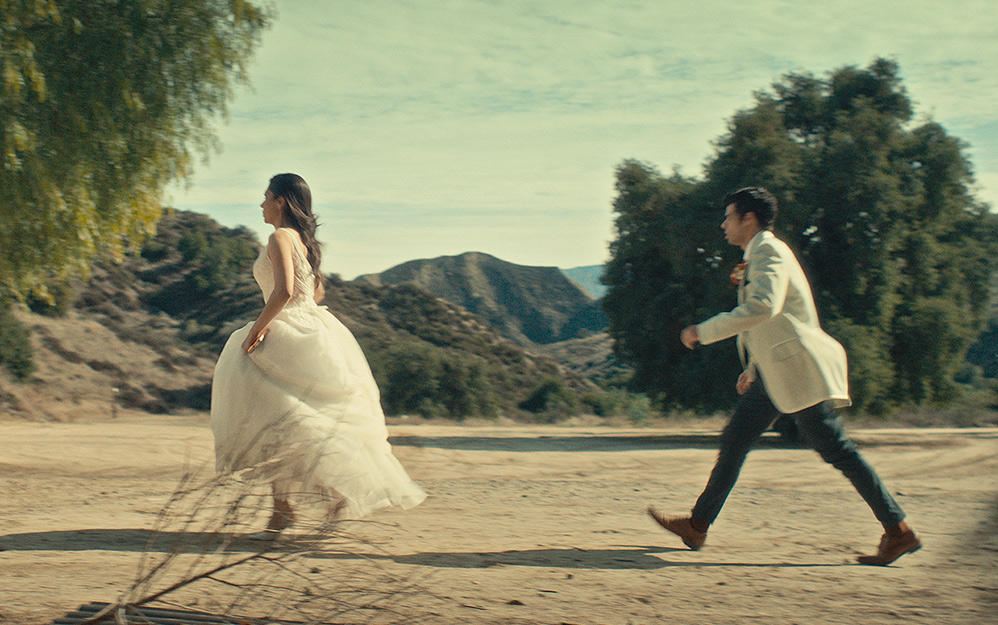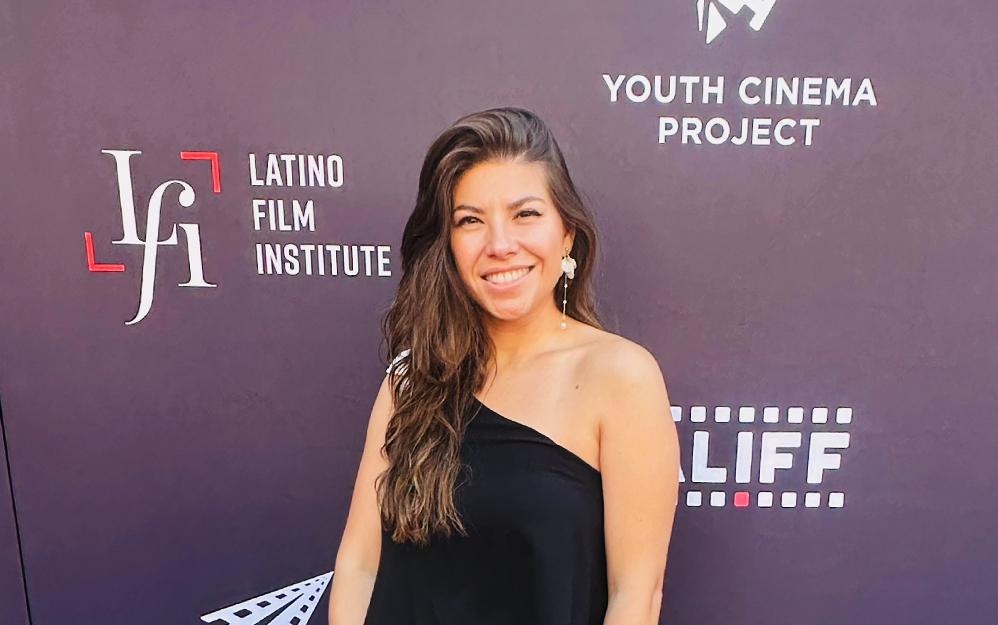
Sofía Rovaletti and Juliana Betancourth from FRACTORY: “The transformation of the short film will bring many more opportunities on social media and streaming platforms.”
The short film I Fcking Hate You!*, which had a special screening at the Los Angeles Latino International Film Festival (LALIFF), is directed by Gabriela Paciel and was produced by Sofía Rovaletti and Juliana Betancourth of FRACTORY LLC. The short was developed as part of the LFI Inclusion Fellowship, a program dedicated to empowering emerging creators with the support of Netflix. The film explores the raw complexities of family relationships, anger, and healing.

Juliana Betancourth, Founder of FRACTORY
“For us, it was very important that this story represented Latinos in a universal way. I believe that as a producer, that’s how we can elevate representation — not just for Latinos, but for any community that is underrepresented or misrepresented. It’s simply about telling a story that could have belonged to any ethnicity — a universal one that we usually see portrayed by white people — and just changing the skin color, ethnicity, and background of the character,” producer Sofía Rovaletti told PRODU.
The film also had creative support from associate producer Caffeine.
Rovaletti added that stories capable of traveling across continents, countries, and communities “are the ones that connect us emotionally and can resonate with much larger audiences.”
“A global community is what helps elevate Latino stories. Understanding that a story about a Latino character can resonate with someone even if they are not Latino — to me, that’s what elevates Latino representation: realizing that we are not that different,” she added.
Meanwhile, Juliana Betancourth, founder of FRACTORY LLC, emphasized that the short was part of a fellowship from the Latino Film Institute, an institution committed to increasing Latino representation in the film industry, in Hollywood, and globally. “Through this initiative, fellows with Latino roots are selected, and from those fellows, teams like ours — from the production side — come on board. From there, a whole technical and creative crew becomes part of the project. From that conception to the actual production of the short film, and then what the story represents, I believe we are definitely raising the bar on what Latinos are capable of — both creatively and in terms of work ethic.”
“It’s a short that really hooks the audience. What we hope for now is to first bring it into the festival circuit, because a big part of the short film’s purpose is to serve as a platform to showcase the work of the creatives behind it,” they noted. They also added that after the festival run, the idea is “to give our sponsor, Netflix, the first opportunity to be our distributor. But if not, we’ll knock on other doors and hopefully recoup the investment made into the short.”
CHALLENGES
When asked about what the short film represented for them, they said it was a very interesting professional challenge because — like most independent producers in Latin America — they are used to delivering the highest quality possible with a limited budget.
“I think it’s something Latinos do very well, because we’re used to living in countries where there’s always some kind of economic crisis that forces us to adapt in general life — not just at work — to tight budgets and making the most out of what we have,” added Rovaletti.

Producer Sofía Rovaletti
She pointed out that “the beautiful part” of the project was the challenge of doing it in a limited time — six months — and dealing with numerous production elements that made it a complex shoot. “It wasn’t just a short in a single location. It had a location that was quite far from where most of the crew lived. We had a lot of elements that made the production more complex than simply having two characters in a small set,” she noted.
Betancourth added that it was also an opportunity for them to show that, as producers, they approach short films with the same seriousness and commitment as the feature films they’ve worked on. “The short has the exact same level of value and commitment — and we want it to turn out just as great, or better. From a production standpoint, it’s about having that versatility and being able to produce all kinds of formats, from shorts to features.”
She also said it gave them practical experience and pushed them to think from the beginning about not just the execution of the production itself, but also the distribution, promotion, and overall strategy. “We had to ask: How far do we want to take this short? And how do we start planning for all those post-production phases from the very beginning — including them in our budgets and overall project planning,” she said.
THE SHORT’S POTENTIAL
The producers believe that short films have significant potential today. “Especially on social media, which is a platform where short films can thrive. People spend so much time scrolling, and watching a five- or ten-minute short is something that’s very appealing. We can see this in the success of vertical shorts — ultra-short episodes of content people watch while commuting on a train, bus, or during a break. It’s a way to disconnect and dive into a story in the small moments of life, without needing to commit to a whole season or a two-hour movie — maybe just five or ten minutes,” they explained.
They believe shorts have a strong future. “I think more platforms will begin to realize this and will want to encourage users to scroll within their platforms instead of social media. And the way they’ll do that is by acquiring shorts — especially comedies. I think we’ll see a transformation of the format that will open many more doors, both on social media and eventually on streaming platforms. Because today, the biggest competition for platforms like Netflix, Hulu, and Amazon isn’t each other — it’s YouTube, Instagram. So they’re going to find ways to pull short-form content into their ecosystems to get people to scroll there instead,” they concluded.
